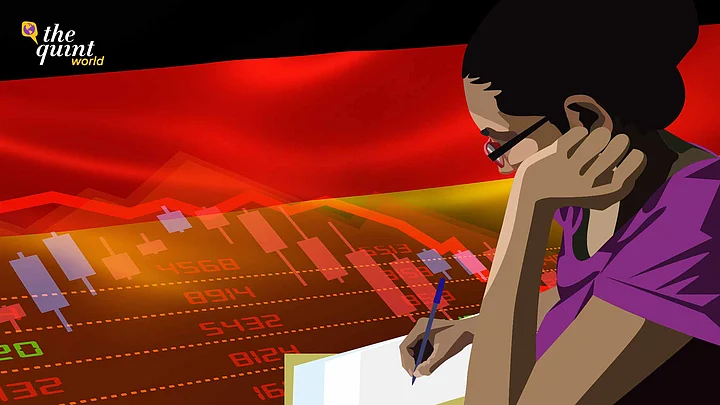When the Russia-Ukraine war broke out last year, its economic seismic waves were felt heavily in Germany. Janhavi Bhavsar, 23, was astounded to see the prices of daily commodities double within a matter of months.
She breathes a sigh of relief now that they are somewhat back to normal but still higher than before.
“When the war had just broken out, the prices of milk, cooking oil and vegetables had become high. It’s come back to normal now, but we are still seeing a significant hike in electricity and water bills. This has ultimately made rent more expensive than it already was everywhere.”Janhavi Bhavsar, 23
She recalls a bottle of cooking oil costing €0.85-0.95 when she landed in Stuttgart, Germany, in 2021. “At its worst, it was up to €4.50, but now it's down to €2.19 euros,” she said.
Similarly, a carton of milk which used to be €0.80, is now almost €1.20.
Germany slipped into a recession after its economy, the largest in Europe, contracted in the first quarter of 2023, according to official figures published on Thursday, May 2023.
The data shows that it contracted by 0.3 percent between January and March. This comes after a 0.5 percent shrinkage in the last three months of 2022.
A country is considered to be in recession if its economy contracts for two consecutive quarters.
Heavily reliant on Russia for energy imports, the Russian invasion of Ukraine was one of the major factors that affected Germany’s economy.
According to the official report, household spending on food, clothing, and furniture decreased by 1.2% quarter-on-quarter following price, seasonal and calendar adjustments. Government spending also took a 4.9% hit in the quarter. The energy crisis has also had a direct impact on industries.
Effects of The Recession on Students at Universities And Travel
In Germany, like other European countries, international students can work part-time to make supplemental income for 20 hours per week.
With the cost of living shooting up paired with work restrictions, students are facing financial issues.
However, students have been able to secure internships and jobs.
“Luckily, for us, because of the recession, we haven’t faced any issues acquiring student jobs and internships. There is still a demand for jobs here,” she adds.
Like many other students, Aryan Patil, 21, was shocked to see the prices of everyday commodities like a can of tuna increase from €1.50 to €2.90 in his local supermarket in Munich after the war. But it did not just stop there.
“Since there are no tuition fees, the expenses for Indian students are similar to those of the local students, so there’s not much difference. However, if you consider flight tickets to India, they have become a bit more expensive. It’s still okay, though. But I’ve been told it will get worse.”Aryan Patil, 21
Moreover, the effects of the recession can be seen even in his extra-curricular activities at university.
“I am a part of a student club that builds rockets, and we rely heavily on sponsors to financially support our projects since the components are pretty expensive. And since a few months, we have received a few rejections, and some sponsors even pulled out solely because they cannot afford it anymore,” he continued.
German Government Steps in to Provide Financial Relief
In light of the increased cost of living, the German government has taken steps to provide financial relief to its population, specifically students.
Students could acquire a €200 per month subsidy soon after the cost of living increased.
“The German government also declared tax-free bonuses up to €3000 that companies can pay their employees,” said Purujit Naik, an Indian national currently working in Munich, Germany.
Moreover, with the unprecedented hike in the prices of fuel, the government made access to public transport easier.
“Prices of fuel for cars had become very expensive because of the war. Because of the hike, the government has made public transport much cheaper. There was a scheme where you could buy a €50 ticket to travel all around Germany for one month.”Purujit Naik, 23
